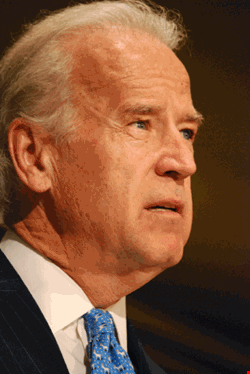




Each year around the holidays, Ryan, a 36-year-old music lover, spends nights inside his New York apartment taking part in his own Christmas tradition – downloading hundreds of songs for free. “I appreciate music much more in the winter time”, he says. “You’re inside because it’s cold out, and what else is there to do [other] than download music?” The cash-strapped producer says he downloads tracks illegally for “strictly economic” reasons. Does he think about possible repercussions? “Sure”, Ryan admits, “but not long enough to deter me from doing it.”
A decade after the rise of Napster and the flurry of lawsuits that followed, talk surrounding the policing of illegal downloads continues as the music industry looks for ways to deter copyright infringers like Ryan from accessing unauthorized music. The good news for the music industry? More people are involved in buying music online than ever before. In 2008, for the first time, the number of legal downloaders surpassed peer-to-peer (P2P) downloaders.
The bad news? The number taking part in illegal downloading remains stable, and research suggests that these pirates are plundering more MP3s than ever before. According to the NPD Group, in the third quarter of 2009, 14% of the US internet population (or 25 million people) aged 13 or older reported downloading at least one music file from an illegal P2P service. As we enter a new decade, the music industry, government, internet service providers (ISPs), and employers are still trying to determine how best to clamp down on piracy. With multiple copyright laws in the works, 2010 is expected to be a big year for file-sharing legislation.
Breaking the Law
Under the Digital Millennium Copyright Act, current US federal law provides civil and criminal penalties for the unauthorized digital transmission of copyrighted sound recordings. The FBI investigates allegations of criminal copyright infringement, and violators can be prosecuted and legally liable for thousands of dollars in damages. One study, conducted by the Institute for Policy Innovation, a US think tank, estimates that recording piracy costs the US economy $12.5bn in annual total output, along with 70 000 lost jobs.
In recent months, the Obama administration has brought intellectual property protection to the foreground of its policy initiatives. Vice President Joe Biden hosted an anti-piracy roundtable in December 2009, at which he told a host of entertainment executives that the “problem has gotten worse . . . Intellectual piracy is costing this country and all of you billions of dollars and thousands of jobs, and unless we better coordinate with all the resources of the federal government to deal with this problem, it’s likely to only get worse.”
| "ISPA is extremely disappointed by aspects of the proposals to address illicit file sharing" |
| Nicholas Lansman, ISPA |
That’s why several new proposals are under consideration worldwide, including the UK’s Digital Economy Bill and the global Anti-Counterfeiting Trade Agreement – both aimed at strengthening the fight against piracy, partly with the help of ISPs. Now that the Recording Industry of America Association (RIAA) has ended its five-year lawsuit campaign against music file sharers, it has turned to an approach that relies on ISP cooperation. “For individual users, a year and a half ago, we began to transition deterrence programs”, a spokesperson for the RIAA tells Infosecurity. “While we retain the right to bring a lawsuit against an egregious downloader who ignores the law, we are now focusing on working with ISPs on programs that warn downloaders in advance that they are breaking the law and could face more serious consequences. For those who repeatedly ignore these warning and continue to download illegally, there would be a series of escalating sanctions.”
Some reports suggest that the proposed agreements center on bandwidth throttling and disconnection of service – with ISPs monitoring customers who appear to be uploading and file-sharing illegally. The ISP would alert customers and ask them to stop. If the customers continue, then they will get one or two more emails. Finally, there’s been talk that ISPs may suspend the users’ access altogether if they don’t comply. “The good news is that, compared to five years ago, ISPs are more interested in working with entertainment companies than being our adversaries”, says the RIAA spokesperson.
Sing Canary, Sing
Although ISPs seem to be inching toward becoming more involved in the process, there is still some resistance. The Internet Service Providers Association (ISPA), a UK trade association, recently spoke out against elements in the Digital Economy Bill. As part of the potential legislation, ISPs could be forced to monitor online activity and send cease-and-desist notices to customers they suspect of copyright infringement. The ISPs then must pass anonymous details to copyright holders, and if an ISP refuses, it could face fines.
| "Intellectual piracy is costing this country…billions of dollars and thousands of jobs, and unless we better coordinate with all the resources of the federal government to deal with this problem, it’s likely to only get worse" |
| Vice President Joe Biden |
Members of the ISPA are concerned that the bill “would penalize the success of the internet industry and undermine the backbone of the digital economy.” The ISPA calls some of measures “ineffective, expensive, difficult to implement and could have unintended consequences such as restricting access to legitimate services”. Whereas the ISPA supports a notification system, it believes it’s up to copyright holders to pursue targeted legal action against infringers. “ISPA is extremely disappointed by aspects of the proposals to address illicit file sharing”, says ISPA secretary general Nicholas Lansman.
British Telecom (BT), one of the world’s largest ISPs, takes issue with some of the options being introduced. “We have been very clear in saying that we do not believe technical measures, such as disconnection and bandwidth throttling, will work anyway and will encourage customers to encrypt their traffic”, says Simon Milner, director of industry policy at BT. “But they will involve huge costs for the ISPs, which will have to be passed on to the customers.” BT wants to ensure that there is due process and a fair hearing before customers face sanctions like having their connections restricted or cut off. “ISPs could only determine whether a customer is infringing copyright by using intrusive network applications, which raise privacy concerns for customers”, Milner adds.
Those privacy worries are shared by other groups, including the Electronic Frontier Foundation, a San Francisco-based rights advocacy group. Media relations director, Rebecca Jeschke, says the more that ISPs get involved, the more likely they could create “a giant surveillance scheme that may not only be used for copyrighted content; it’s hard to believe it would only be used for that.” If consumers get dropped from one ISP, they might be stuck without any internet because some areas of the US don’t have many ISP options, Jeschke notes.
Switching Sides
Illegal file-sharing doesn’t only happen at home, but it’s increasingly taking place at work. Global web security company, ScanSafe, estimates a 55% increase in illegal MP3 and software download attempts on corporate networks during the last three months of 2009. Many medium to large-sized companies currently utilize proxies and intrusion detection systems to watch for illegal file-sharing. When it comes to downloading at the office, however, the liability lies within a “very grey area”, says Spencer Parker, director of product management at ScanSafe. “In some countries, if it resides on your network, its’ your responsibility”, he notes. “It’s key for companies to block this type of thing.” Parker believes organizations should update “acceptable-use policies” so employees know that accessing illegal content on the company network could be an offense worthy of dismissal. Secondly, he urges companies to block P2P websites so employees “can’t get access”.
| "In some countries, if it resides on your network, its’ your responsibility" |
| Spencer Parker, ScanSafe |
Some insiders believe that striking a balance among music trade groups, the industry, and ISPs could help thwart copyright infringement. Privacy and cost issues, however, continue to loom. So what’s the solution? A spokesperson for the American Society of Songwriters, Authors and Producers (ASCAP) insists that education is a key component to recouping some of the money lost to the industry, adding that “all entities that are involved in, or facilitate illegal downloading need to take ownership”. The RIAA further notes that “the single most effective anti-piracy strategy is to help build a thriving legal marketplace. But we also believe compelling legal options need to be complimented by targeted enforcement and education.”
Jeschke, meanwhile, pushes for “voluntary collective licensing”, arguing that it’s a way “to get artists paid and for everyone to get legal”. The ISPA’s Lansman says what’s needed is the “reform of content licensing to enable legal alternatives at a fair price.” With that, ISPs are increasingly making content deals with entertainment companies – a budding business model that could spark collaborations between ISPs and the music industry.
As for Ryan, he plans to spend next holiday season illegally downloading hundreds more songs. “Money’s tight for a lot of people”, he says. “I wouldn’t have half of the music I do now if I had to pay for it.” Still, he says not paying for a music artist’s work “isn’t necessarily a good thing”, adding, “I don’t work for an ISP and I don’t know the real threat of being caught. But I am aware of the dark side.”